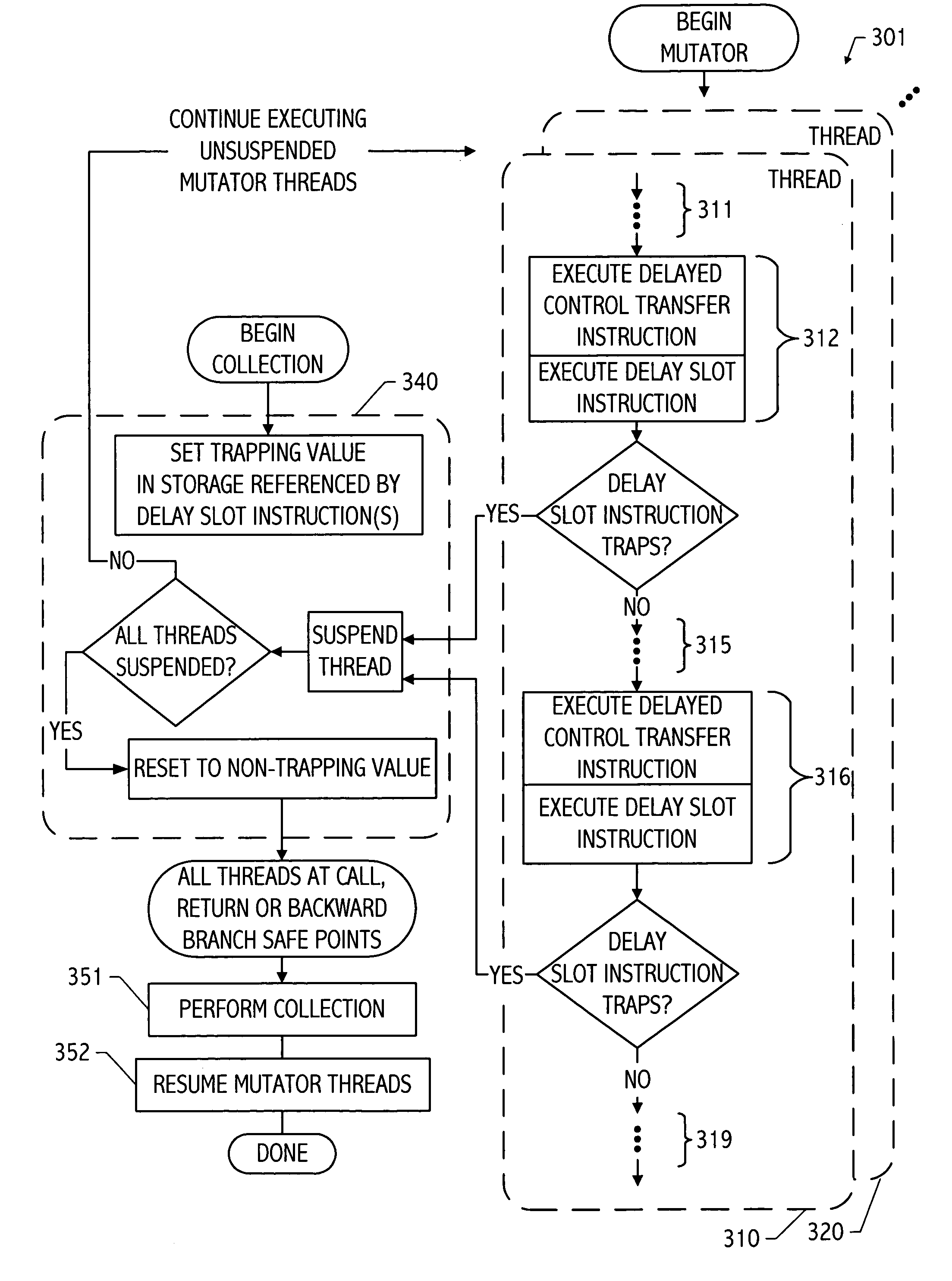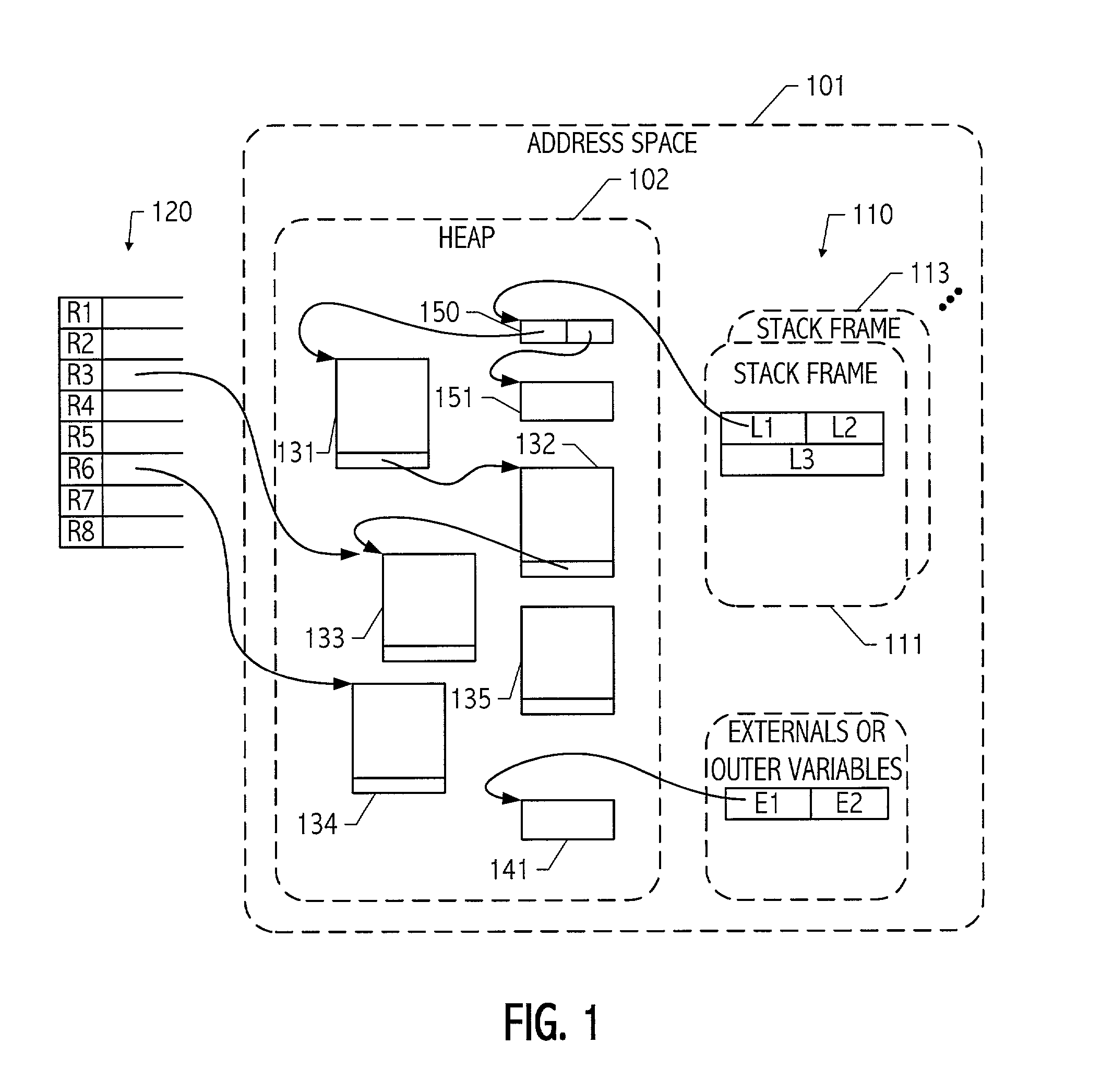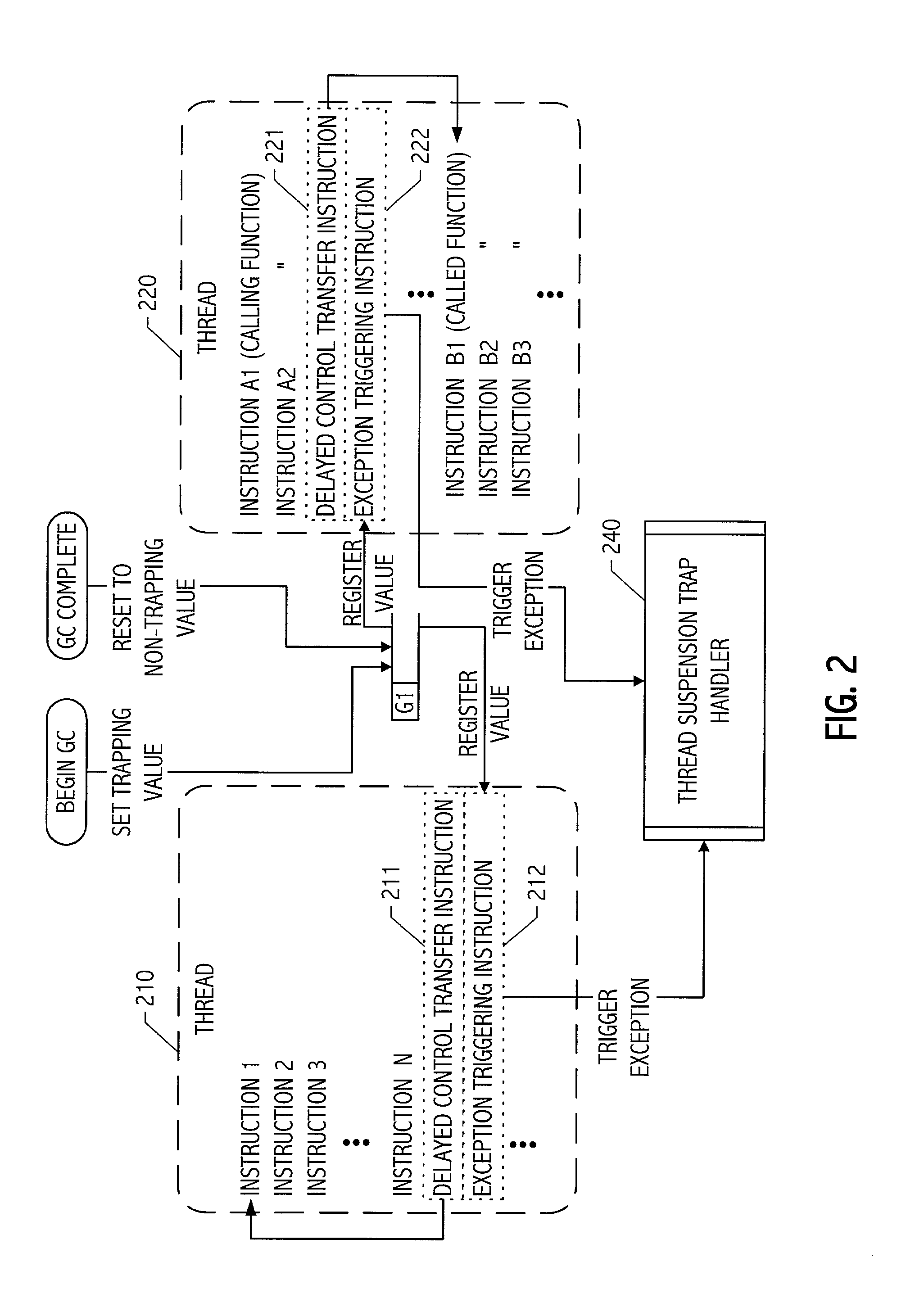Thread suspension system and method using trapping instructions
a thread and instruction technology, applied in memory address/allocation/relocation, multi-programming arrangements, instruments, etc., can solve the problems of dynamic memory being difficult or impossible for the programmer or compiler to determine the point, dynamic memory being difficult or impossible to manage correctly, and dynamic memory becoming unreachable, etc., to achieve the effect of reducing overhead, reducing latency, and imposing negligible overhead
- Summary
- Abstract
- Description
- Claims
- Application Information
AI Technical Summary
Benefits of technology
Problems solved by technology
Method used
Image
Examples
Embodiment Construction
)
[0020]To facilitate garbage collection, it is desirable to provide a mechanism by which threads of a mutator can be efficiently suspended at safe points. Conditional execution of suspension code at such safe points is one technique. For example, at selected safe points in mutator code, a compiler can insert instructions that check a flag that is set when garbage collection is desired and cleared when the garbage collection has completed. If the flag is set, the suspension code is run to suspend the mutator. This technique can be described as “polling at safe points.” Unfortunately, the polling technique introduces substantial overhead. A flag test must be performed at every safe point and millions of safe points will typically be traversed between garbage collection cycles. Extra flag test and branch instructions degrade performance, increase code size and consume processor resources such as instruction cache space and flags.
[0021]Another technique involves self-modifying code. Whe...
PUM
 Login to View More
Login to View More Abstract
Description
Claims
Application Information
 Login to View More
Login to View More - R&D
- Intellectual Property
- Life Sciences
- Materials
- Tech Scout
- Unparalleled Data Quality
- Higher Quality Content
- 60% Fewer Hallucinations
Browse by: Latest US Patents, China's latest patents, Technical Efficacy Thesaurus, Application Domain, Technology Topic, Popular Technical Reports.
© 2025 PatSnap. All rights reserved.Legal|Privacy policy|Modern Slavery Act Transparency Statement|Sitemap|About US| Contact US: help@patsnap.com



